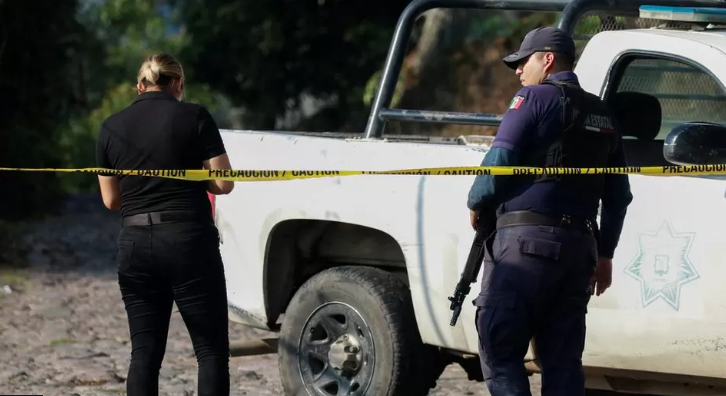(BBC News) The body of a correspondent for one of Mexico’s leading newspapers has been found in the western state of Nayarit, days after he was reported missing.
Luis Martín Sánchez Íñiguez, 59, worked for La Jornada and had been missing since Wednesday.
His death is being treated as a murder linked to his work, in one of the most dangerous countries for journalists.
Sánchez is one of three journalists to have been abducted in the state in recent days.
His body was found on Saturday in the village of El Ahuacate near the city of Tepic, the public prosecutor’s office said — a day after his wife filed a missing person’s report.
Two messages were attached to his chest, but the authorities have not revealed what they said.
It is thought Sánchez was killed between 24 and 48 hours before his body was found.
His disappearance came a day after a teacher and former reporter went missing on his way to work. The whereabouts of the man, named as Osiris, remains unknown.
The third person to go missing was a man named Jonathan, who the authorities said was abducted on Friday but was found alive and “in a good state of health.”
Sánchez’s death has sparked outrage in Mexico and internationally. The Mexican Commission for the Defense and Promotion of Human Rights has called for the authorities to clarify what happened.
“We demand justice for the Mexican journalists!” the group wrote on social media.
The Americas branch of the Committee to Protect Journalists is among the other rights groups that have condemned the killing.
Sánchez is not the first journalist to be targeted in Mexico this year.
José Ramiro Araujo, a news photographer, was killed in the northern state of Baja California in February. La Jornada said at least four others have been murdered.
Press freedom organizations have consistently ranked Mexico as one of the most dangerous countries for journalists to work.
Many of those targeted covered corruption or powerful drug cartels, and campaigners say the killings are rarely fully investigated.
Nearly 150 journalists have been murdered there since 2000, according to the international advocacy group Reporters Without Borders.


